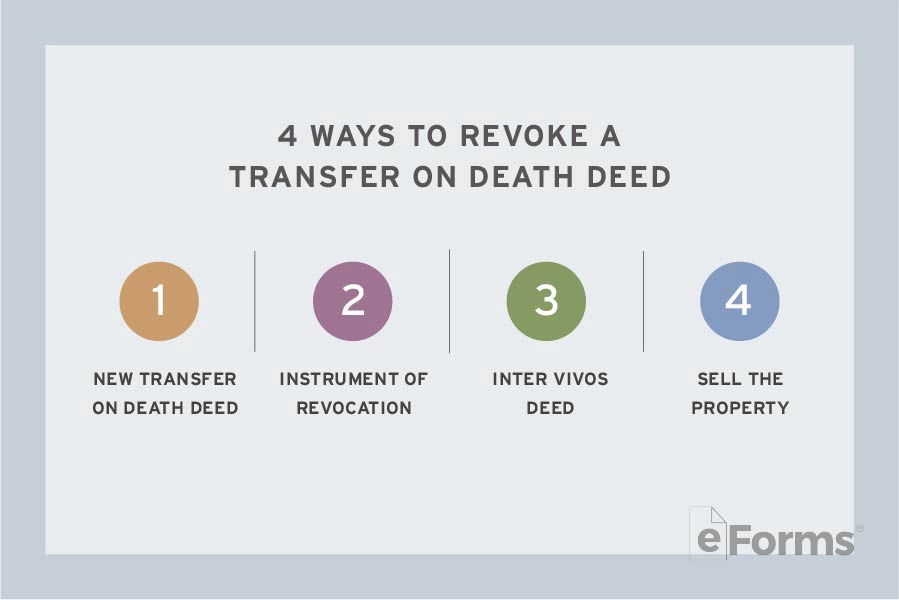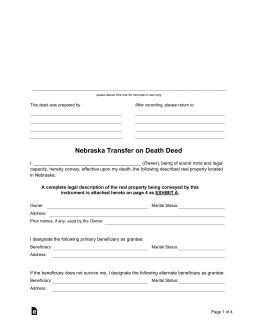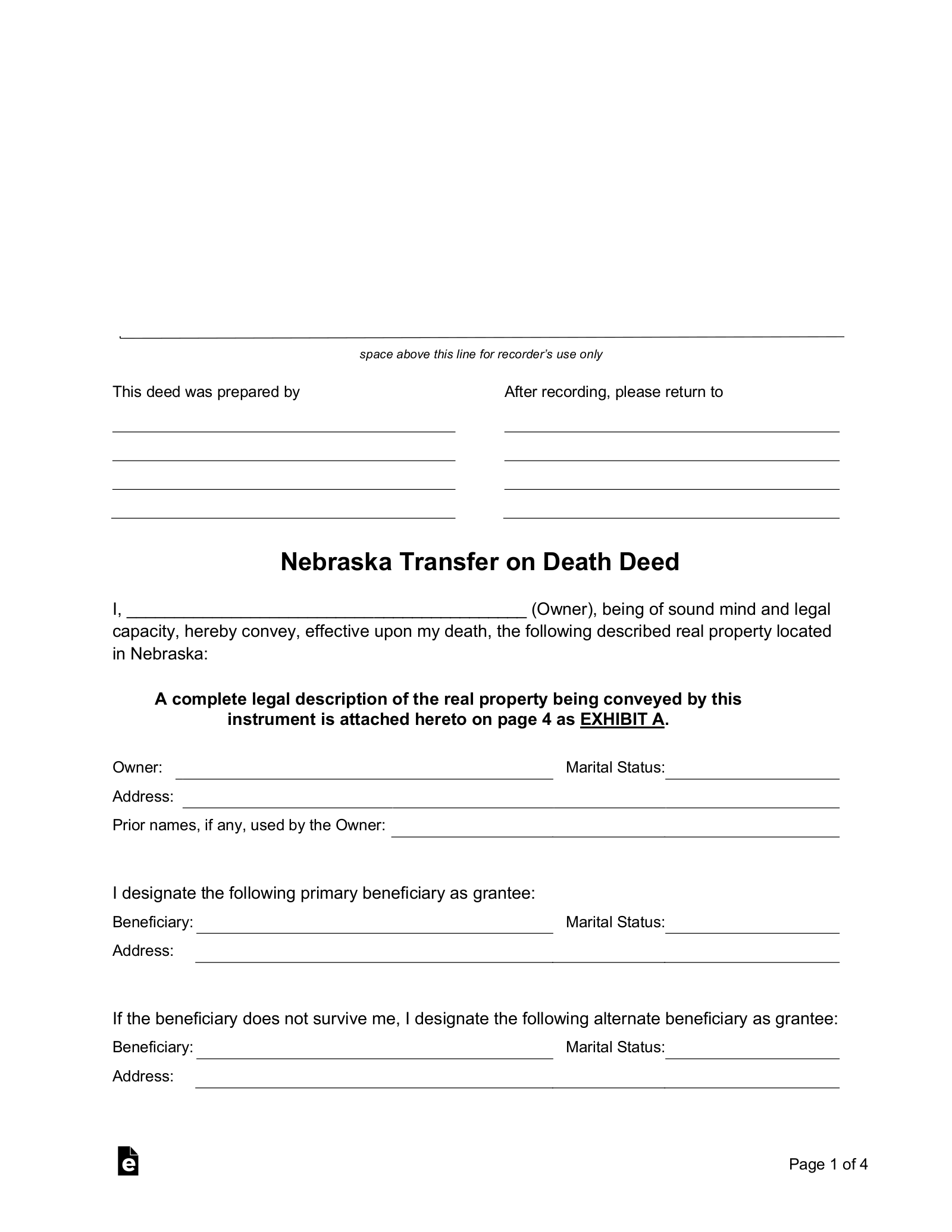Updated March 21, 2024
A Nebraska transfer on death deed, or Nebraska survivorship warranty deed, is used to transfer property upon the death of a grantor. This allows the grantor to keep the property out of the probate process upon his or her death and have it go directly to a named beneficiary. This type of deed can be revoked at any time while the grantor is still alive.
Table of Contents |
Requirements
- Notary: Required (§ 76-3409)
- Recording: Must be recorded with the register of deeds in the county where the property is located within 30 days of being executed and before the property owner’s death (§ 76-3409)
- Witnesses: Two disinterested witnesses (§ 76-3409)
Legal Description
A legal description of real property specifies the parcel’s location, boundaries, and physical attributes. This written statement is referenced during title transfers.
Legal descriptions can be found on property tax statements and the current deed. The register of deeds can also locate this information.
Example
“Lot 8, Block 2, Golden Acres Subdivision, according to the official plat thereof, filed in the office of the County Recorder of Douglas County, State of Nebraska.”
Revocation

To revoke a TOD deed in Nebraska, a property owner may either (§ 76-3413):
- Execute, acknowledge, and record a new transfer on death deed; or
- Complete an instrument of revocation that expressly revokes the previous TOD deed (§ 76-3409); or
- Execute an inter vivos deed; or
- Sell the property.
If the TOD deed has more than one transferor, revocation by one transferor does not affect the interest of another transferor (§ 76-3413 (b)). Instead, a deed of joint owners can only be revoked if executed by all living owners.
Where to Record
After completing the transfer on death deed form and getting it notarized, property owners must bring the document to the register of deeds in the county where the property is located to be recorded. The TOD deed must be recorded within 30 days of being executed and before the property owner’s death. Otherwise, it is considered void (§ 76-3409).


